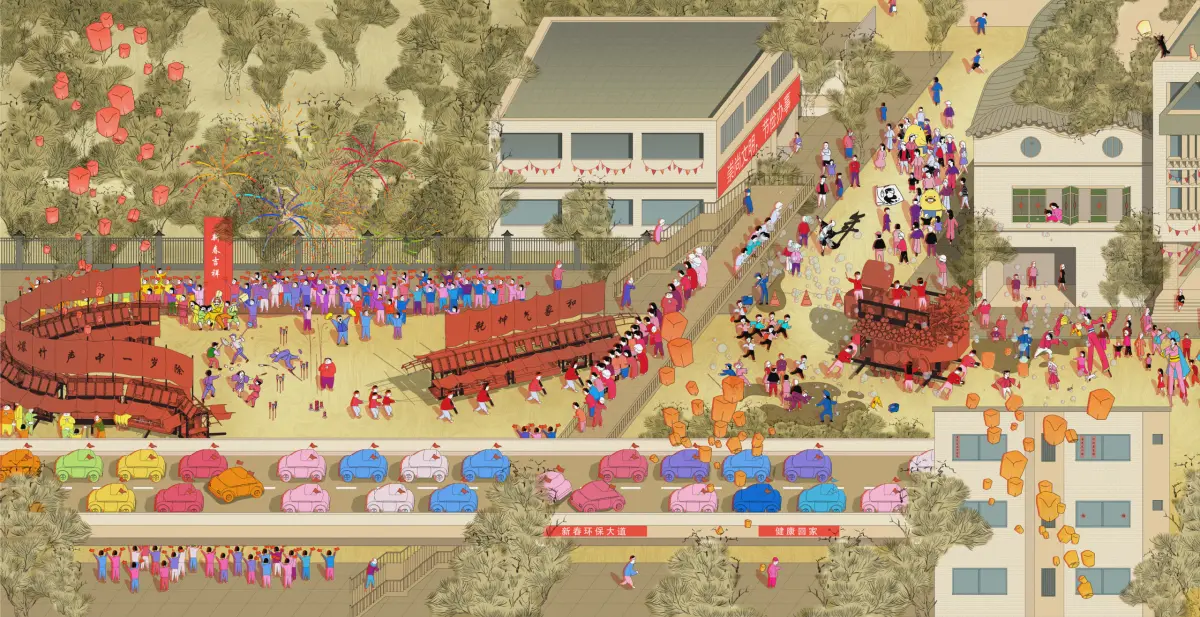
The Production of Fortune
BY Chen Siqi
SUPERVISED BY Assoc. Prof. Lilian Chee (Dr.)
STUDIO THEME REMOTE PRACTICES: A MINOR ARCHITECTURE AND ITS DISTANT ARCHIVES
Abstract
During Chinese New Year, routines and practices centred around the production of fortune unfold. Confronting the crisis of waste and inequality generated from the material pursuits of fortune, this thesis reimages how a different understanding of fortune can play out in the contemporary city, as revised traditions inculcating new meanings and practices concerned with the environment.
My thesis reframes ideas of ‘Fortune’ and its traditions that are now distant to contemporary livelihoods, grounding them within our everyday consumption practices. Through this, my project reimagines a more relational idea of fortune formed by enabling people to act as stakeholders and stewards of the environment.
Set within my hometown of Guangzhou, China, a network of temporary architectural interventions and festival landscapes imaginatively span across the city. Structured as a parade, the thesis follows the spatial and temporal movement of people preparing for and participating in Chinese New Year celebrations within familial homes and neighbourhoods, right up to their departure at the train station. The project relates these key spaces through collective pursuits of environmental ‘health’ and ‘wealth’. On the streets, mobile dragon floats collect discarded household objects and sunlight, wind and rain, transforming these elements into education resources, free energy, and a cleaner city. The Guangzhou Train Station turns into a seasonal orchard, producing fresh air, with an abundance of fruiting trees and wild ecology, thus safeguarding the happiness and health of the home-returning travelers. Through this festival landscape, the thesis transforms the production of fortune into a collective consciousness of the urban environment.
Supervisor Comments
Siqi’s thesis wrestles with age-old Chinese traditions, routinised and sanctioned over time into norms that have remained largely unquestioned, particularly in how these practices have evolved in tandem (or not) with contemporary needs and aspirations. Her project shines in its strategic rethinking of customary spring-cleaning rituals, which continue to persist and culminate in excessive waste (following the Chinese adage: ‘to throw out the old and bring in the new’). Rather than uproot tradition, the thesis reengages with architecture’s meaning-making capabilities. It reframes new paradigms of ‘fortune’, updating traditional practices of spring-making into future-oriented pursuits for a healthier environment, and a cleaner city.
- Assoc. Prof. Lilian Chee (Dr.)